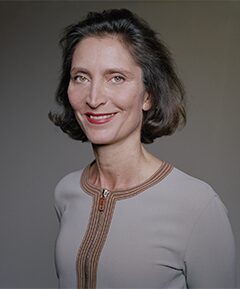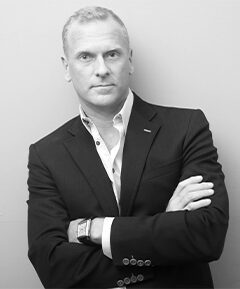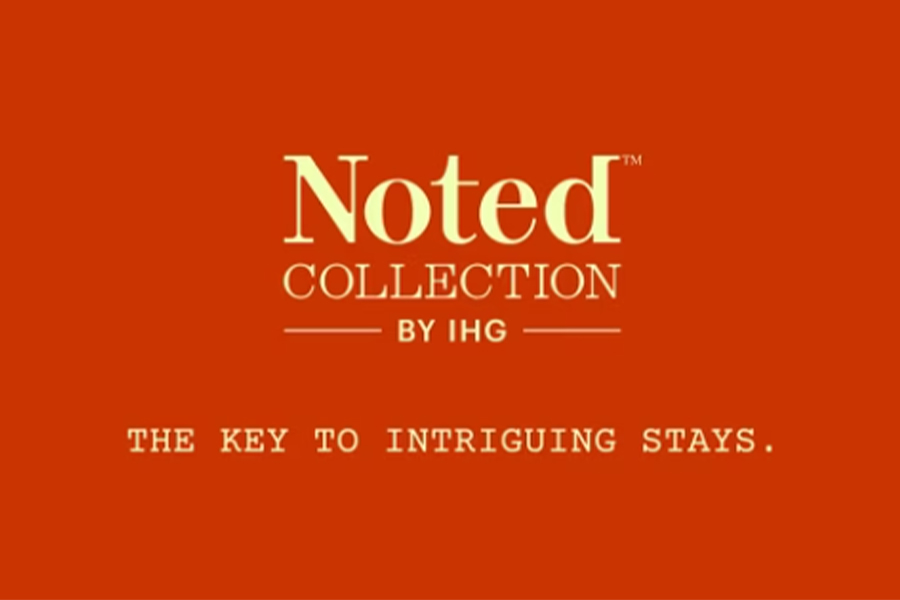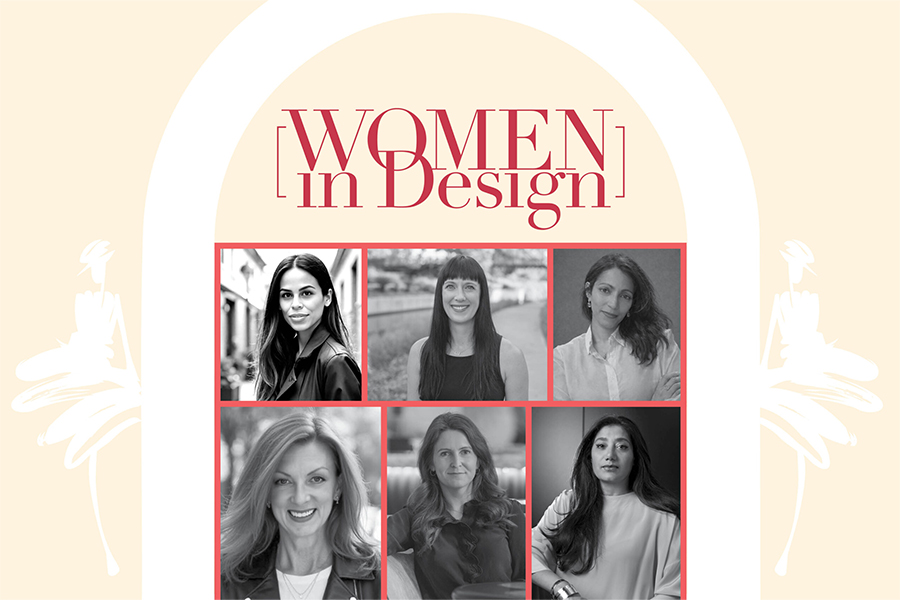As the world continues to navigate the COVID-19 pandemic and adapt to these unprecedented times, HD is checking in with members of the hospitality industry around the globe to find out how their businesses are being impacted and what they anticipate will change down the line.
Lionel Ohayon, ICRAVE

What are the biggest challenges you’re facing?
What has been concerning to us is that a large portion of the team are young, many are alone, and several are new to the city and living in small spaces. With this extended work-from-home situation, our focus turned to the wellbeing of our team. Creating boundaries between work and personal time became evident, and creating community and inspiration were next to follow.
We implemented one-on-one buddy calls, which randomly pairs studio members for a call to check in, and even meet people. We also have a daily meditation before the workday, celebrate birthdays, and continue to do social mixes regularly. That, with the onslaught of Zoom and GoToMeetings, has created an interesting mix of ‘happy to have it’ and ‘leave me alone,’ giving people a choice of where and when they want to participate.
What is your current work situation?
The shift to working remotely was surprisingly seamless for us. We were up and running pretty much immediately, which surprised me and has been a source of much of my thinking about a way forward. We have settled into a new and productive workflow, although we are definitely looking forward to being back in the studio jamming on new ideas.
We decided we would keep the entire team together—no layoffs, no furloughs. That is a commitment leadership came to early, and we have stayed the course.
What are some of the positive effects of working in these new ways?
We learned that work can be productive even if it’s not done at the studio. This is a huge development in an industry that traditionally requires very long work weeks and should inform a company like ours to explore a new reality of what work looks like when we head back to the studio. We focus on the experience of our clients so much, it’s time we do the same for our own team. I am excited about that.
What is your pulse on the industry?
Cautiously optimistic. If the world is changing, then we will be called on to explore how the experience of place should be reinvented. So in that sense, there should be a lot of innovation work for us in the near future.
What does this mean for the future of hospitality?
It means that it’s not business as usual, or put more bluntly: Evolve or die. The industry is coming back, and there are changes in hospitality that need to be implemented as a reaction to the pandemic. Some larger organizations will use this downtime to renovate existing properties. There will be a shake-out in the market, which will affect us all, and financing projects is an issue today, but once there is access to capital again, I suspect we will have a lot of opportunity.
Lastly, share some good news! Have you done anything to stay busy in these crazy times?
The silver lining for me has been time with my family and finally committing to a couple of personal projects that I have sidelined for too long. If I get through this with a better understanding of life balance, I believe this tragic episode will have a far-reaching impact for me and the people around me, too.
Yasmine Mahmoudieh

What are the biggest challenges you’re facing?
The most challenging part for me was that all my participation and lectures at International Hospitality Investment Forum (IHIF) and MIPIM were cancelled, along with many meetings with potential investors that we had set up.
What is your current work situation?
I was glad to send my staff to work from home, although we have team members living in different countries that had already been working remotely for some time. We have video calls every other day and communicate on WhatsApp. I did not have to lay off anyone, fortunately, as we were still finishing up some work, and I’ve invested our time into doing research on how we can help the hospitality sector.
What are some of the positive effects of working in these new ways?
We realized that we can be efficient if we have a good structure in place and clear processes for everyone to contribute. Also, I have been working on my own hotel brand for some time, and it is being accelerated now, as it is a perfect proposition for the post-COVID-19 period. It’s a country hotel, but more architecturally driven, and I want to roll the concept out outside many metropolitan cities. It will consist of separate cottages in addition to hotel rooms and a creative event structure. It will be absolutely sustainable, using many of the unique materials from all over the world.
What is your pulse on the industry?
The industry is, in general, very challenged. I believe that visionary investors and developers are going to move forward very soon with new projects, knowing that it is only a matter of time that things will improve.
On the other hand, I see also a kind of survival of the fittest. I never believed that large mass-market hotel projects, where people are pressed into big hotel containers with all-you-can-eat buffets, would be sustainable in the longterm. This type of hotel or resort is typically insensible to their environment and, in many cases, upset the local population.
What does this mean for the future of hospitality?
I see an opportunity for the luxury sector, which has always been more focused on privacy. I also think remote areas could market themselves brilliantly with more unique design propositions and destinations, as people seem to have more of an urge to be in nature. I also predict a rise for many wellness and spa hotels, as there is a huge potential to create them with special services to take care of the guests’ overall health and immune system.
I believe student hotels and other budget properties will also bounce back sooner than the mid-market, because young, healthy people are going to be less concerned about traveling than older or more at-risk groups. The only constant in life is change, and companies, brands, or individual hotels who adapt faster and are more flexible will be the winners in any crisis.
Lastly, share some good news! Have you done anything to stay busy in these crazy times?
I also have a tech company myKidsy, which is an online marketplace to book activities for children, both online and offline. We were able to accelerate and expand our online classes, which includes architecture, VR racing with a British gold medalist in sailing, and classes led by David Attenborough about geography and our planet.
Michael Fiebrich, Michael Fiebrich Design

What are the biggest challenges you’re facing?
The challenges we thought would be most daunting—managing projects and productivity remotely, mastering new technologies to communicate, and making client presentations virtually—have all gone much smoother than anticipated. The biggest challenge is that design is collaborative, tactile, and social, all things that, unfortunately, aren’t possible at the moment. We’re a close-knit team so we mostly miss the physical interaction—not being able to push and pull on a concept, sketch and scribble together, or charrette in person. Also, a few of us on the team are from Texas, so we miss hugs.
What is your current work situation?
We have been working remotely for three months, but fortunately saw the writing on the wall and started planning for it early. We’ve managed to successfully do everything from concept presentations to reviewing construction documents virtually. I’m really proud of our team and how we’ve been able to stay fully operational and productive.
We’ve really diversified our portfolio over the past several years, from hospitality to residential to workplace, as well as started to offer additional services like art consultancy and procurement. Even though certain segments, like gaming or F&B, are down, we’ve been able to rely on other markets and services to keep going.
A friend and client was recently quoted in an interview saying ‘calm seas never made a good sailor’ and that really resonates with me right now. As a business owner, hard decisions have to be made all the time and everyone in our industry has probably had to make some tough calls. Our team and talent are our biggest asset, and we’ve managed to keep it intact.
What are some of the positive effects of working in these new ways?
Adversity always, ultimately, breeds positive change. We’ve all had to work differently—and harder—to accomplish ordinary tasks, stay connected and communicate, so it’s very uplifting to see that our team, and our entire industry, was up to the challenge.
What is your pulse on the industry?
Hospitality, entertainment, and travel will come back, but, as we saw with SARS and the 2008 financial crisis, the industry will have to adapt to different realities, expand into new markets, and find new ways to create meaningful experiences. We’ve learned how economic declines can result in a changed global perspective and create new opportunities for modernization. Fortunately, that’s what we do as designers, so I see this as an exciting opportunity.
What does this mean for the future of hospitality?
Travel, whether for business or leisure, will never go away but hoteliers and designers will have to evolve and address new parameters for health, wellness, and even physical space. As an industry, we deal in authentic hospitality and memorable experiences every day and will no doubt rise to the challenge. Spaces and experiences that promote a sense of comfort and wellbeing will become even more important.
Lastly, share some good news! Have you done anything to stay busy in these crazy times?
Having time to focus on several product designs that had to previously take a back burner to projects has been a positive. We’ve realized a lighting and accessories collection, and are working on furniture and wallcovering collections, too.
On a personal note, we adopted two puppies in December so we’ve had the chance to really bond. (They’re completely spoiled now!) Being home more often has forced us to slow down a bit so we’re trying new recipes, gardening more on the weekends, and tackling projects around the house that we never had the bandwidth for.
Related stories:
4 Hospitality Leaders on Weathering the COVID-19 Storm
3 Designers on Adjusting to Unpredictable Circumstances
4 Designers and Architects on the Future of Hospitality
For more COVID-19-related news and stories from HD, click here.


